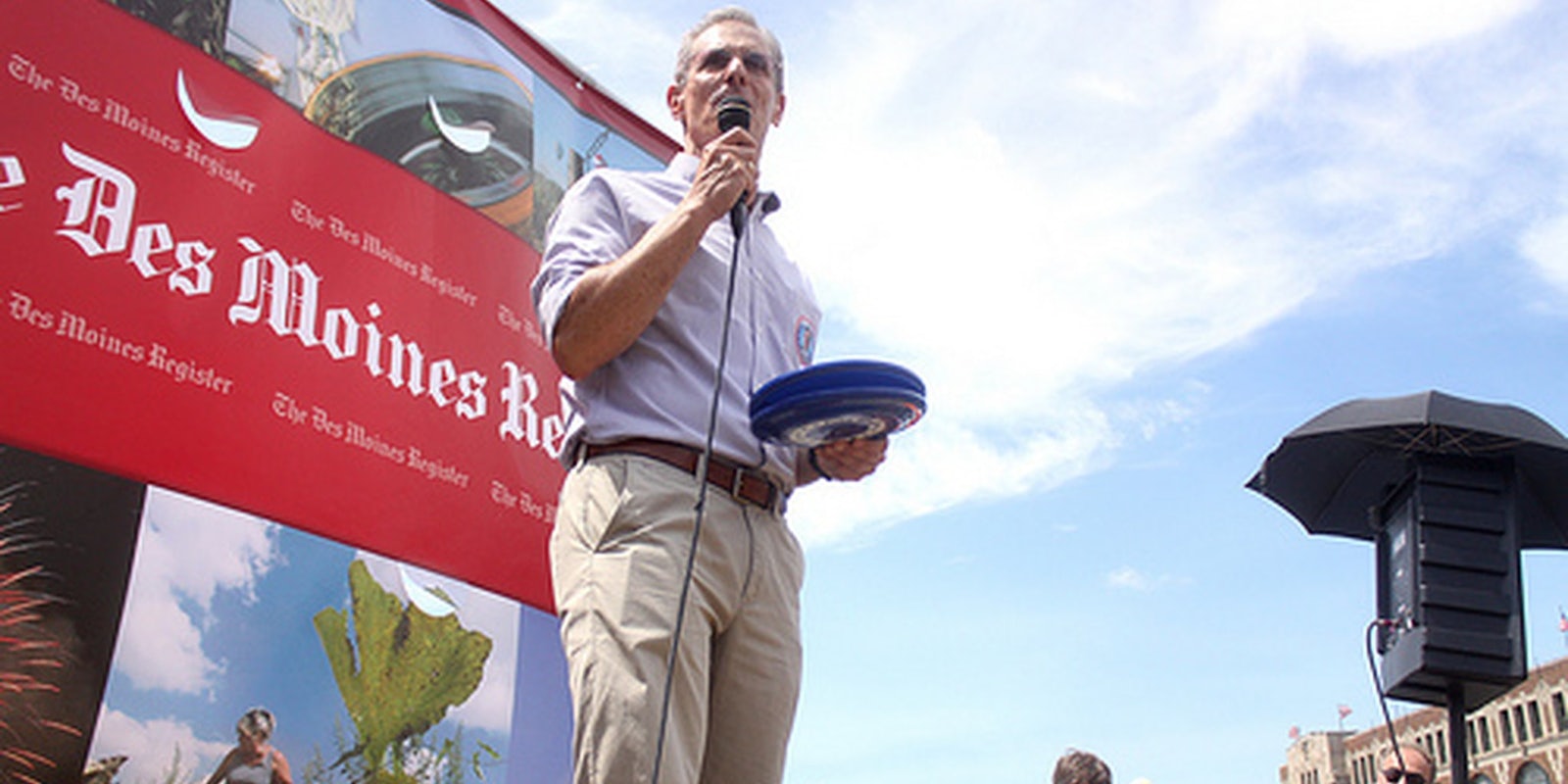Gary Johnson, Buddy Roemer, and Fred Karger. None of these men will be president of the United States—at least not this time around—and their campaigns know that’s the likely outcome. But poll numbers and a lack of debate invitations haven’t deterred these candidates from making a run at the Republican nomination for president, if only to make their message clear.
And without big money supporters and huge media buys, these candidates have taken to social media like never before, using Twitter to participate in debates they were left out of and producing YouTube videos to get their message out to anyone who will listen.
For Karger, a longtime political operative who worked on the campaigns of Ronald Reagan and George H.W. Bush and is the first openly gay presidential candidate, the message is about bringing down barriers, said spokeswoman Rina Shah.
“His campaign is fueled by the desire to show not only young gays but anyone, that you can do anything you want—even run for president of the United States,” she said.
Since Karger began running in 2010, he has used social media as his primary tool to connect with voters. Shah said they have made some television advertisement buys in New Hampshire, where they’ve focused on running in the first in the nation primary, but efforts online have been their best and most financially-available tool.
“YouTube, Twitter, Facebook and all of the social media stuff has been a massive part of our daily messaging,” Shah said.
Earlier this month, Karger took to YouTube to respond to Gov. Rick Perry‘s campaign commercial “Strong,” which criticized the repeal of U.S. policy, Don’t Ask, Don’t Tell, and has become one of the most hated videos on YouTube. Karger’s video, titled “Rick Perry Ashamed,” took shots at the Texas governor and his faltering poll numbers.
Although the video only has 23,000 views, the ratio of likes to dislikes is far better than the video it criticizes. Shah said the video was a serious response to Perry’s ad, but keeping it lighthearted was important.
“We certainly don’t want to run a negative campaign, but we’d be remorseful if Fred, as the first openly gay candidate, didn’t take a stab at responding to Perry,” she said. “It was a natural decision, but we could also liken it to Fred’s personality; he’s got a great sense of humor.”
Karger isn’t the only candidate who has embraced social media.
Roemer, who was governor of Louisiana, recently hired 140elect.com to run his Twitter campaign. The consulting group has established tools for candidates to put forth an extensive effort on the social media site, and recommends utilizing multiple accounts.
“This is very exciting for us,” wrote campaign manager Carlos Sierra in a press release last month. “Twitter has been an invaluable tool for Buddy in the absence of any nationally televised debates. Social media, and Twitter in particular, have made it possible for Buddy to connect and communicate with supporters and members of the media in very engaging, meaningful ways.”
And the Twitter campaign may be working. Roemer is a constant presence on Twitter and sends out dozens of messages everyday. According to stats from 2012twit.com, a site maintained by 140elect.com, Roemer is the second most re-tweeted candidate, behind Newt Gingrich. Of course, much of that may have to do with how often the candidate tweets. One thing is for sure however, Roemer is behind social media all the way.
“Twitter epitomizes all that is right in America: transparency, dialogue, and an open forum for citizen debate. God bless social media,” Roemer tweeted in October.
Shah said that it’s still too early to predict how social media will change elections in the future, but said it has the possibility to grow like television based campaigns did a half century ago. She also said that while free platforms like Twitter and Facebook do give voice to candidates that aren’t as well funded, it still can’t make up for a lack of big dollar donors.
“It’s great to talk about, but it is a little too idealistic,” she said.
Image by Gage Skidmore
